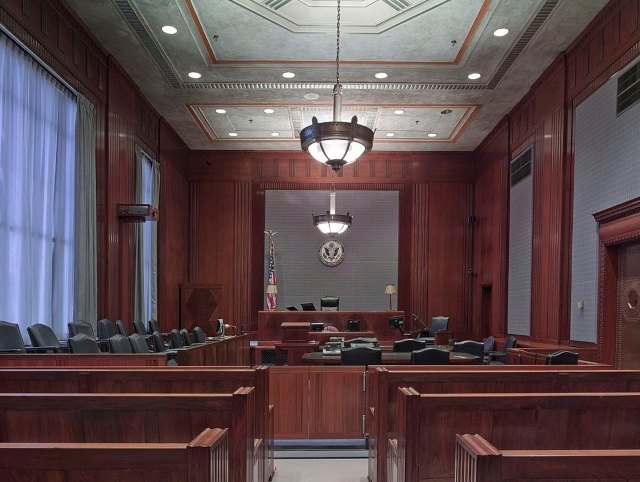Why You Need a Lawyer for Your Habeas Corpus Situation
Why You Need a Lawyer for Your Habeas Corpus Situation
Blog Article
Comprehending the Function of a Post-Conviction Legal Representative in Seeking Justice After a Criminal Conviction
In the complex landscape of post-conviction lawful procedures, the role of a post-conviction legal representative is essential in navigating the course to justice after a criminal sentence. Beyond the boundaries of a trial, these lawyers engage in a diverse method targeted at revealing new evidence, challenging lawful mistakes, and promoting for their customers' legal rights. The ins and outs of post-conviction work call for a mix of lawful acumen, investigatory skills, and critical believing to unwind the intricacies of a situation and pursue methods that may have been overlooked or underexplored. As the search of justice expands past the confines of preliminary procedures, the role of a post-conviction attorney arises as a sign of hope for those seeking to correct injustices and redeem their rights within the legal system.
Post-Conviction Legal representative's Investigatory Job
Post-conviction legal representatives involve in thorough investigative work to discover new evidence, procedural errors, or misbehavior that might possibly lead to reversing a conviction. This investigatory phase is crucial in the post-conviction process as it intends to determine any kind of ignored details or lawful mistakes that might have impacted the result of the initial test. Post-conviction attorneys delve into instance files, witness statements, and lawful documents with a fine-tooth comb, looking for any kind of discrepancies or irregularities that might be grounds for charm.
Through thorough investigation, post-conviction lawyers aim to clarify potential oppressions that may have happened during the initial test. They might conduct meetings, seek advice from specialists, and review forensic evidence to construct an engaging case for their customers. By looking at every element of the lawful process, post-conviction attorneys function relentlessly to uncover any variables that might have influenced the decision. Eventually, their investigative work plays a pivotal role in the pursuit of justice and the potential reversal of wrongful sentences.
Crafting Appeals and Petitions
In the search of justice after a conviction, proficient lawyers carefully craft charms and petitions to existing compelling arguments for the reconsideration of lawful decisions. Crafting charms and requests needs a deep understanding of the lawful system, focus to detail, and tactical reasoning. Post-conviction legal representatives analyze trial records, identify prospective errors or infractions of rights, and create legal arguments to challenge the conviction or sentence.
When crafting a charm, lawyers focus on highlighting legal mistakes that might have impacted the result of the case. They research instance legislation, laws, and lawful precedents to support their debates. Petitions, on the various other hand, might include offering new evidence that was not available during the trial or showing adjustments in the law that necessitate an evaluation of the conviction.
Moreover, post-conviction lawyers need to stick to rigorous procedural rules and deadlines when submitting allures and requests. They need to offer their arguments plainly and persuasively to encourage the court to provide alleviation to their customers. With thorough crafting of allures and petitions, post-conviction attorneys strive to secure justice for individuals who have actually been wrongfully founded guilty or unfairly sentenced.

Pursuing Post-Conviction Alleviation
Post-conviction relief incorporates a variety of legal devices made to challenge the credibility of a sentence or sentence. Post-conviction attorneys play a crucial role in browsing these intricate treatments, guaranteeing that all lawful options are checked out to correct oppressions that may have taken place throughout the test or sentencing stage.
One common form of post-conviction alleviation is submitting a request for post-conviction relief, typically based on insurance claims of ineffective aid of counsel, prosecutorial transgression, newly discovered evidence, or constitutional offenses. Experienced post-conviction attorneys possess the skills and expertise essential to recognize feasible lawful claims, perform investigations, and existing compelling arguments to safeguard relief for their clients.
Using Forensic Proof
When testing a sentence or sentence, the strategic use of forensic evidence can be a powerful tool in post-conviction lawful proceedings. Forensic proof includes a large range of clinical methods utilized to examine crimes and establish realities in court. Post-conviction legal representatives can take advantage of forensic proof to test the credibility of sentences by presenting brand-new clinical findings that were not offered during the initial test.

Participating In Sentence Adjustments
Post-conviction lawyers might check out the opportunity of sentence adjustments as a lawful opportunity to address disproportionate or unjust sentences handed down in criminal instances. Sentence alterations include seeking changes to the regards to an accused's sentence after a conviction has actually happened. These modifications can include reducing the size of a sentence, altering the kind of penalty enforced, or discovering alternate sentencing alternatives.
Post-conviction legal representatives can seek sentence modifications through numerous lawful systems, such as submitting motions for sentence reduction, appealing for compassionate release, or discussing appeal bargains for lowered sentences. They have to carefully review the situations of the instance, examine the lawful premises for seeking an adjustment, and existing compelling arguments to the court supporting the need for a modified sentence.
Involving in sentence adjustments needs a complete understanding of criminal legislation, punishing guidelines, and the certain procedures entailed in seeking post-conviction relief. Post-conviction attorneys play a crucial duty in advocating for fair and simply results by difficult sentences that are unduly extreme or do not align with the principles of justice.
Final Thought
To conclude, the duty of a post-conviction lawyer is essential in seeking justice after a criminal sentence. Through investigatory job, crafting appeals and requests, pursuing post-conviction alleviation, utilizing forensic evidence, and participating in sentence adjustments, these legal experts play an essential role in supporting for their clients and making sure that their rights are webpage promoted within the criminal justice system. Their commitment and know-how are necessary in navigating the complexities of post-conviction procedures and achieving a fair end result for individuals facing criminal convictions.
Report this page